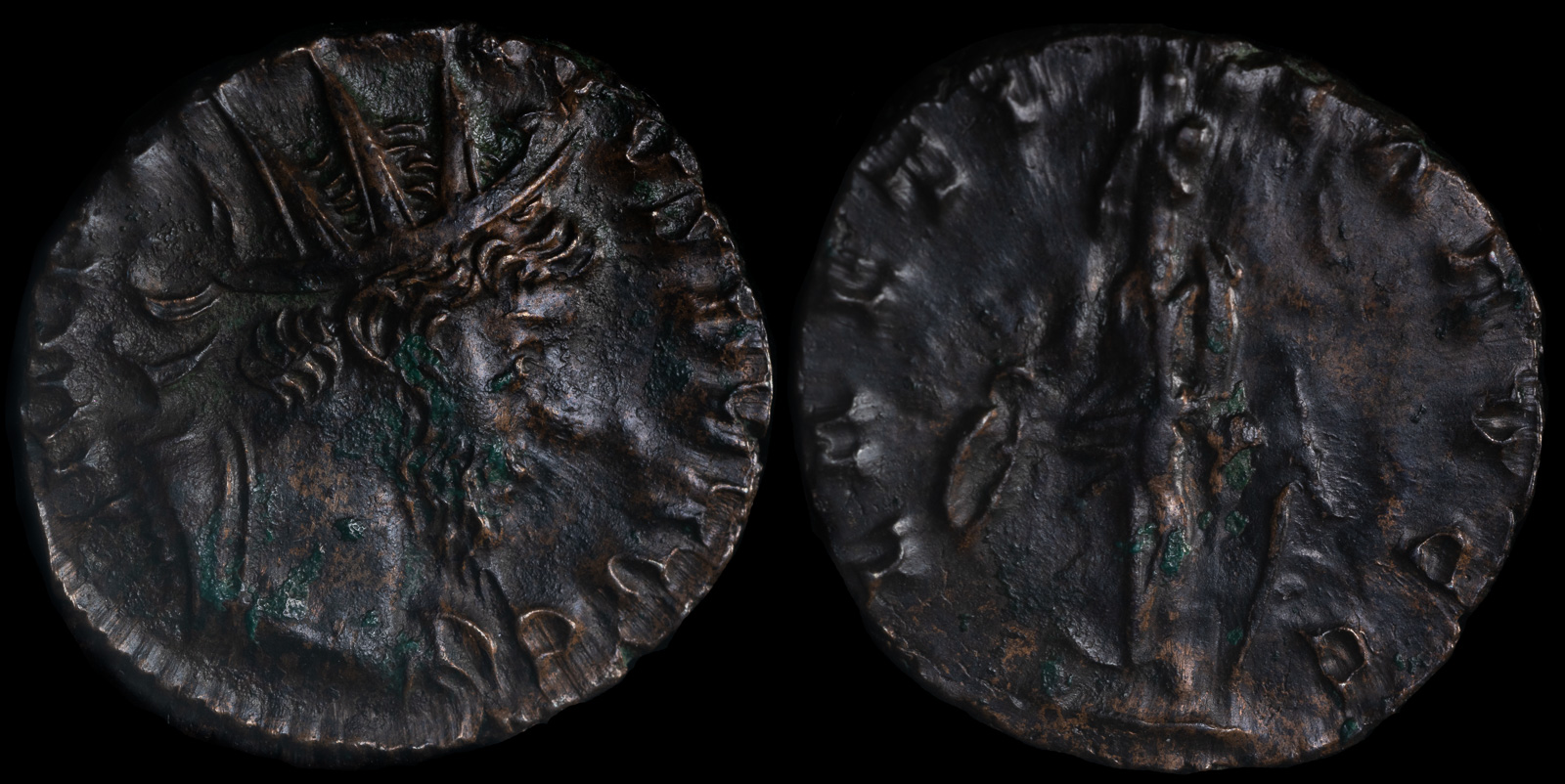Laetitia
View All Tags
Laetitia was a symbol of general happiness, often tied to the success and stability of the empire. She was invoked and depicted during celebrations of military victories, imperial anniversaries, and other occasions that underscored Rome’s prosperity and strength. Her presence on coins and monuments was a way of affirming the emperor’s ability to provide peace and plenty to the populace.
Laetitia was typically portrayed as a serene and graceful woman, often holding a cornucopia, a scepter, or a rudder. The cornucopia symbolized abundance and the fruits of the empire’s prosperity, while the rudder reflected control over destiny and navigation toward a positive future. These attributes tied Laetitia not just to personal joy but also to the broader success of the Roman state.
Laetitia appeared frequently on Roman coins, particularly during the Imperial period. Her presence on coins served as a form of propaganda, reinforcing the emperor’s role as a provider of happiness and stability. The legends accompanying her image often included phrases such as “Laetitia Augusta” or “Laetitia Publica,” emphasizing the joy brought by the emperor or the collective well-being of the people.

Tetricus I
Treveri, 272-273 CE
BI Antoninianus 2.23g, 18mm, 6h.
IMP [C TETRI]CVS P F AVG, radiate and cuirassed bust to right /
LAETITIA AVGG, Laetitia standing facing, head to left, holding wreath and anchor
RIC V.2 87 var. (bust type); J. Mairat, The coinage of the Gallic Empire, Wolfson College, Trinity, 2014 (unpublished PhD Thesis), 797
Ex Fritz Rudolf Künker 2009.